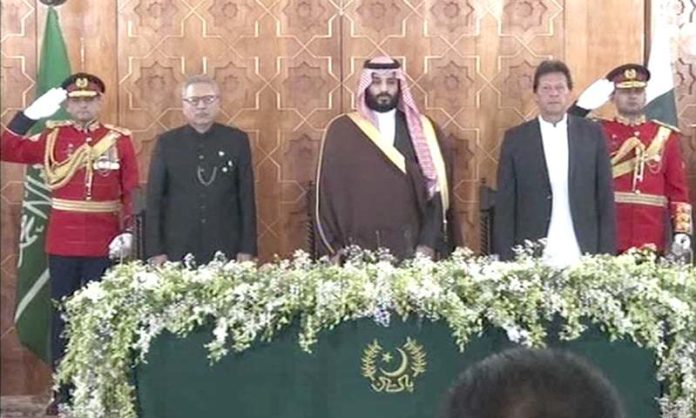Introduction
On February 17, 2019 Prince MBS visited Pakistan on a two-day trip and signed seven” Memorandum of Understandings (MoUs)” on areas of mutual interest. His visit was seen to be in political, economic, security, ideological and diplomatic frames brought about a new discourse in bilateralism between the two Islamic brothers. This was even reiterated by Prime Minister of Pakistan Imran Khan in his interview with Saudi TV” Al Arabia just moments before the Crown Prince landed, saying, the visit of the crown prince is a manifestation of the strength of this relationship. First, the crown prince’s visit will strengthen the diplomatic support of Saudi Arabia to Pakistan and will reinforce our relations. Second, I am confident that the economic relations of the two countries will be further expanded by identifying new avenues of investment and as well as Joint Ventures. Third, it would further our mutual trust and strong historical relations.1
All the Gulf States have genuinely close relations with Pakistan but Saudi Arabia emerges as having the warmest and closest relations with Pakistan, whether it was the wars of 1965 or 1971 or endorsement of Pakistan’s atomic tests Saudi Arabia approached Islamabad with open heart and helped Pakistan. Both nations have stayed close partners at the outbreak of Afghan War and Global War on Terror. Pakistan had additionally sent troops to ensure the sacred sites in Saudi Arabia amid the 1990-1991 Gulf War. Moreover, the Saudi-led-Alliance of Islamic Military is commanded by Pakistan’s former army chief, General Raheel Sharif. Saudi Arabia and Pakistan are driving nations at the Organization of the Islamic Conference (OIC). Progressive Saudi pioneers have visited Pakistan many times. King Saud visited Pakistan in 1954, King Faisal travelled in 1966 and 1974 and King Khalid in 1976. Essentially, King Fahd as Crown Prince visited Pakistan in 1980 and King Abdullah visited as Crown Prince in 1984, 1997, 1998 and 2003.
In the middle ages when Arab traders were the main supply chain of silk, saffron, spices, cotton and other goods between Pakistan and Europe through the silk route, centuries of history exist in relations between the two lands. These trade relations between the two countries have been utilized in many other fields. For example, Pakistan has provided assistance in the field of science and technology, infrastructure development and many more. Pakistan is providing training facilities to the Saudi Armed Forces and in the commercial and trade sector, Pakistan and Saudi Arabia maintain very good relations which is increasing with the passage of time. The Kingdom is amongst the top 20 major export destinations of Pakistan. Pak-Saudi annual bilateral trade is above US$4billion. Major items of exports from Pakistan to Saudi Arabia includes, raw cotton, cotton yarn, cotton cloth, readymade garments, knitwear (hosiery), made-ups, bed linen, towels, tents and canvas, art silk and synthetic textiles, leather garments, furniture, carpets and rugs, footwear, sports goods and surgical goods, rice, fish, fruits, vegetables, spices, biscuits, jams, juices, etc.
Though iconic symbolism does matter between nations but something which produces dynamic results is the harmony among interests. This recent Saudi-Pak interaction is a right step in that domain that has opened a new avenue of international relations between the two. When it comes to holistic interaction, the visit by Crown Prince MBS is beyond economic outlook. One should not only look at the US$20 billion investment, there are gestures of mutual respect vested through defense and security that makes the bondage an exceptional mode of interaction between Pakistan and Saudi Arabia. Beyond such exceptional gestures there is another world where Pakistan and the Kingdom had established strategic ties that must remain out of public consumption for a good reason. To pursue bilateral interests and “with a view to enhancing bilateral relations in various fields”, the two brotherly countries decided to establish a Joint Supreme Coordination Council between the Kingdom of Saudi Arabia and the Islamic Republic of Pakistan, co-chaired by His Royal Highness the Crown Prince, Deputy Prime Minister and Minister of Defense from the Saudi side, and by His Excellency the Prime Minister from Pakistani side for enhancing and institutionalizing bilateral relations in various fields and take them to a higher level. Meetings to be held meetings in the two countries alternately”2
Crown Prince Muhammad bin Salman’s visit is seen through political, economic, security, ideological, and diplomatic frames; some observations and analysis on the said themes are mentioned below.
1. Political
The visit is an endorsement to the newly elected government of Imran Khan who promised the nation to uplift the political image of Pakistan. Since Pakistan was facing rather cold relations with brotherly Muslim nations, particularly Saudi Arabia, this visit has removed the dust of cold relations and started a new phase of warm relations. This is evident from statements of the Crown Prince given on different occasions during his stay in Pakistan. Some statements are mentioned below:
1. Can’t say no to Pakistan.
ii. Consider me your ambassador in Saudi Arabia.
iii. We were waiting for such a leadership in Pakistan
iv. Pakistan will be soon top twenty world economies
v. We can’t stay aside from growing Pakistan’s economic outlook.
vi. This is first phase of Saudi investment in Pakistan, which time and again will be increased.
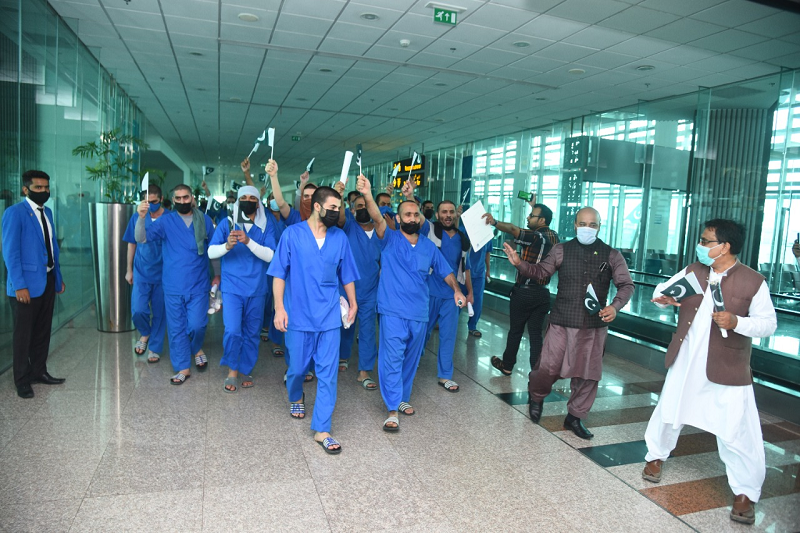
All these statements are not only calculated but also have deep political foresight for the benefit of Pakistan’s political portfolio at international stage. In fact, these are not statements but a complete package of Pakistan’s geo-strategic, geo-economic, and geo-political importance in the 21st century international relations. Crown Prince Mohammad bin Salman’s posturing towards Pakistan made him a very popular and influential statesmen. For example, during a dinner when PM Imran Khan appealed to the Crown Prince to release the 3,000 Pakistanis languishing in Saudi prisons, the Crown Prince agreed to release about 2107 Pakistanis showing his love and trust for Pakistan. This singular act of the Crown Prince not only helped Imran Khan achieve the political manifesto he had chanted during his election campaign but also strengthened his legitimacy as a man of his word. Breaking from protocol Imran Khan personally drove the vehicle in which the Crown Prince was sitting.
This was a catch all moment between two nations that took relations to a new level further boosting the admiration, popularity and love for the Crown Prince. Twitter and social media went into overdrive with amazing comments from the people. Even Imran Khan acknowledged this, saying I woke up this morning and when I looked at my mobile phone, I realized that after your statement last night on saying that you would be Pakistan’s ambassador in Saudi Arabia, I realized your highness if you stood for elections in Pakistan you would be able to get more votes than me. You are at the moment extremely popular.3
As of now, more than 2.5 million Pakistanis are working in Saudi Arabia. Pakistan’s educated, skilled and talented manpower that is working in the Kingdom is one of the vibrant factors driving our economy attracting huge foreign exchange with continuous growth of international remittances. According to figures of oversees employment promoters, the number of visas issued by the Saudi Embassy and Consulates has risen to 25,000 every month in which 70 to 80 percent of the aspirant workers migrate every month to different cities of Saudi Arabia. Remittances from KSA to Pakistan have increased significantly over the years.
The popularity of the Crown Prince Mohammed bin Salman bin Abdul aziz was not without reason. He ordered establishing a health center in the name of Pakistani martyr Farman Ali Khan in his hometown in Khyber Pakhtunkhwa. Martyr Farman Ali Khan was awarded the Order of King Abdul aziz of the first class for his heroic act during the floods that swept Jeddah in 2009 by saving 14 people and drowning while saving others.4 One of the streets of Jeddah has also been named after him.5 Due to such exceptional posturing, the Prime Minister Imran Khan had to reassert with love and feelings when he told the Crown Prince that “consider Pakistan as your second home and the Prime Minister House as your house”. The Crown Prince was given the highest civil award “Nishan-e-Pakistan” making him the youngest recipient of this prestigious award since the inception of recognition of extraordinary services rendered to boost/ energize bilateral relations.6
The political fruit Pakistan has been gaining out of its strategic relations with the Kingdom are of great value. For example, the Kingdom’s recent US$3 billion aid to ease Pakistan’s current budget deficit under “balance of payment support” has provided the required confidence and stability into its economy. Furthermore, the Kingdoms “one-year deferred payment facility for oil imports” is another indication that mitigates Pakistan’s energy needs. In total this was a US$6 billion bailout package for Pakistan that also demonstrated the confidence in government functioning.
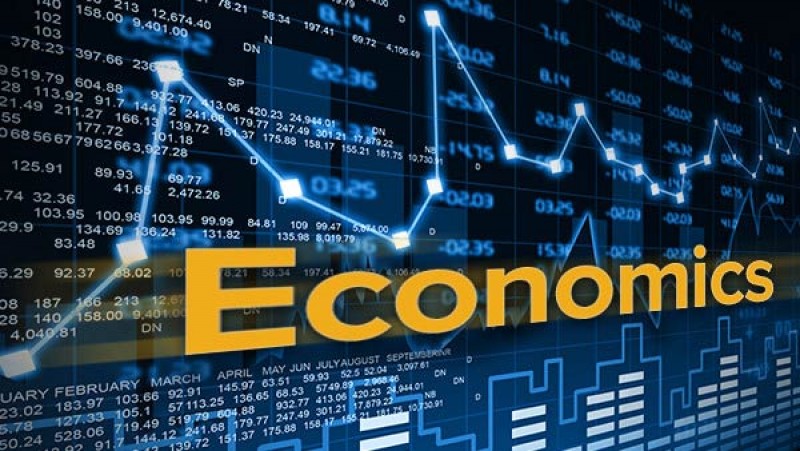
2. Economic
Economically, the current government was in turmoil which provided the Kingdom an opportunity to invest. It is important to mention that economic ventures always address mutual benefits. The US$20 billion investment is of great importance for Pakistan as its leadership of the country was tirelessly focussed on attracting international investors. Due to Saudi Arabia’s investment chances are bright for small to medium level investment in Pakistan that would gear up international efforts by the global investors to secure their shares. From the US$20 billion, the Kingdom has invested about US$10 billion on a single project i.e. about establishment of an oil refinery. As reported in the media, “the Kingdom will establish a US$10 bn integrated refinery petrochemical plant in Gwadar. The capacity of the proposed oil refinery will be between 250,000-300,000 bpd (11-13 million tons per annum)”.7 The refinery would bring mutual benefit both for the Kingdom and Pakistan. For example, the oil which the Kingdom exports to China mostly takes more than a month to reach its final destination. From the Gwadar based oil refinery Chinese requirements would be met within 6 days’ time period. A few hundred skilled and unskilled Pakistani labourers would also get employment. The remaining US$10billion investment would end up in the following areas:
i. Future cooperation between the “Pakistan Standards and Quality Control Authority (PSQCA)”and Saudi Standards, Metrology and Quality Organisation. PSQCA is a state body that advises that government on promoting industrial efficiency to improve the competitiveness of Pakistani products in the international markets.
ii. The Saudi Fund for Development (SFD), set up to channel bilateral aid to developing countries, will finance the supply of crude oil and petroleum products to Pakistan. Saudi Arabia is expected to invest in Re-Gasified Liquefied Natural Gas (RLNG) plants to the tune of $4 billion and $1 billion in petrochemical projects over a period of two to three years. The SFD will further make investments of over $1 billion.
iii. Saudi Arabia will assist Pakistan in the production of electricity and its generation. The Saudi-based ACWA Power will bankroll renewable energy projects worth $2 billion.
iv. Cooperation and promotion of sports between Saudi Arabia and Pakistan.
v. A MoU was signed in the field of mineral and mine resources from Balochistan and the Khyber Pakhtunkhwa province of Pakistan. The total amount for the project will be $2 billion.
vi. A MoU was signed in the field of developing renewable energy projects.
During his interview with “Al Arabia” Prime Minister Imran Khan emphasized on Saudi investment of oil refinery saying “the Saudi oil refinery planned in Gwadar would help boost local production and local energy market. The exchange of skills and transfer of technology and best practices would enhance competition and increase the productivity of our local refineries. It would also complement the projects under the CPEC.8 When it comes to CPEC, China has been another exceptional friend of Pakistan that has already committed to invest US$62billions in Pakistan, which is three times bigger investment then the current investment of Saudi Arabia. By 2030 Chinese investment on CPEC will cross the US$100billions.9 Emphasizing on the future prospects of economic ventures between the two countries, Prime Minister Imran Khan also said, “Pakistan would like to develop an economic and cultural corridor with Saudi Arabia to further expand the bilateral relations. Our relations with Saudi Arabia are not based on the exigencies of time but are time-tested. We hope that Saudi Arabia would invest in other sectors as well to bring the economic and trade relations at par with our political relations.10
Saudi Arabia is very much interested in meeting the US$100billion investment in Pakistan by 2030. Crown Prince Mohammad bin Salman pointed this out when he said that” It’s a big for phase one and definitely it’s going to grow every month, every year in big numbers and will be beneficial for both countries. Saudi Arabia cannot say no to Pakistan.11 This would somehow complement the CPEC project rather than creating any competition with China. On this front Chinese Ambassador to Pakistan Yao Jing welcomed the Saudi investment in CPEC and said that “we welcome investment in CPEC.12 Also just two weeks prior to Prince MBS visit, the Russian Gazprom company on February 06, 2019 signed a MoU with Pakistan to invest US$14 billion in the energy sector.13 Entering in the league of “a friend in need is a friend indeed”. United Arab Emirates (UAE) leadership has also helped Pakistan with US$ 6.2 billion to stabilize the cash starved economy of Pakistan.14
3. Security
Pakistan has been very clear about its role in the Kingdom’s security with that of her neutrality in the Muslim world. In his first interview given to any international media, Prime Minister Imran Khan in September 2018 categorically stated that “Pakistan would not allow anyone to attack Saudi Arabia and will always stand with the Kingdom.15 Just moments before Crown Prince Muhammad bin Salman’s visit to Pakistan Imran Khan once again reiterated in his interview with “Al Arabia”; that Pakistan in any case or scenario would ensure protection of the Kingdom of Saudi Arabia. It is not only Pakistan’s commitment with Saudi Arabia on issues of security rather the Kingdom also sees eye to eye on security issues of Pakistan. This was recorded in the joint statement between Pakistan and Saudi Arabia, which mentioned that, “the two sides agreed on the importance of political settlement and promoting peace and stability in Afghanistan so that millions of Afghan refugees in neighboring countries can return to their country and contribute to their development and lasting peace. The Saudi side appreciates Pakistan’s generous hosting of millions of Afghan refugees and other initiatives by Pakistan in the Afghan context.16 Keeping in view the next visit of Crown Prince to India, it is observed that a positive environment would be created to defuse the ongoing stalemate between New Delhi and Islamabad. The Crown Prince appreciated the initiatives of Imran Khan for initiating peace dialogue with India and opening up the “Kartarpur Corridor” to accommodate Sikh pilgrimage.17
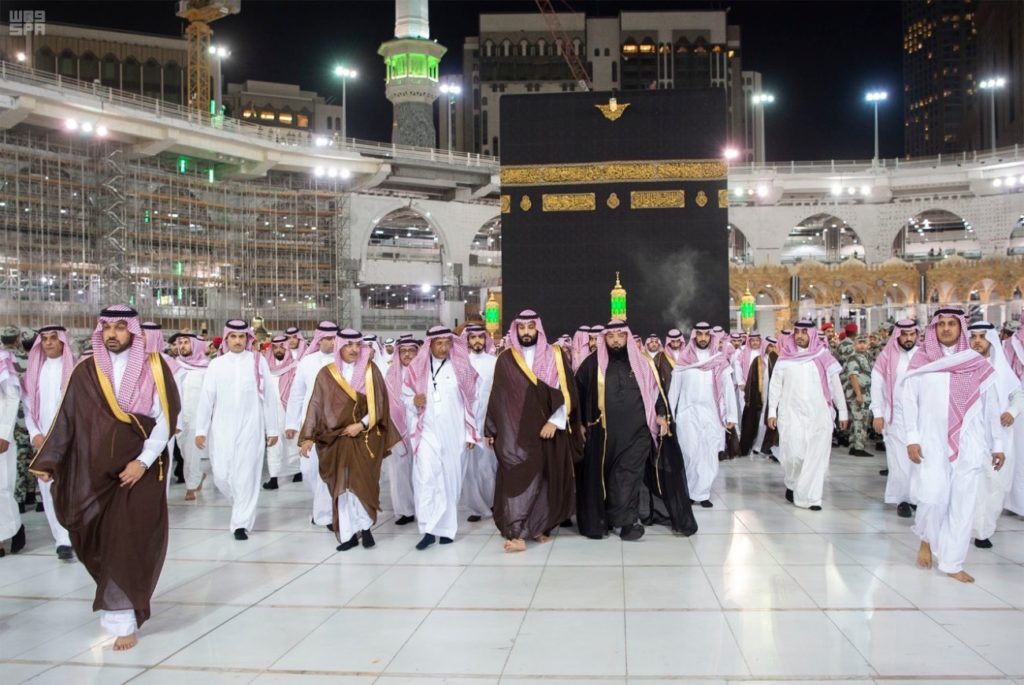
Being the custodian of Holy Mosques, the Crown Prince enjoys great respect and authority over Muslim ideology with that of Islamic code of conduct. This recent visit had endorsed the Pakistan armed forces conduct and its role to combat the menace of terrorism in Pakistan’s tribal areas. This was also reiterated in the joint statement which noted the sacrifices and resilience of Pakistani nation in these words, “the Kingdom of Saudi Arabia and the Islamic Republic of Pakistan reiterated their commitment to continue combating extremism and terrorism and expressed their deep appreciation for the achievements and sacrifices made by the two sides in the war against terrorism. They also applauded the martyrs who sacrificed their lives in order to confront this serious scourge and called on the international community to shoulder its responsibilities to join all international efforts to combat global terrorism”18
4. Ideological
Ideology has played an important role between Pakistan and Saudi Arabia. The 220 million population of Pakistan have great respect and affinity with two holy Mosques of Makkah and Madina. Such love cannot be replaced by any material or political benefit. It is important to mention that majority in Pakistan, like the Prince MBS, know that ideology does play a significant role but is not the only decisive factor of international relations among Muslim nations. For example, Prince MBS recent visit to India where it would invest about US$40billion as compared to US$20 billion of Pakistan is a clear manifestation of international relations that places “national interest”; as “supreme interest”. Knowing that India is an enemy state of Pakistan and was the primary factor behind the disintegration of East Pakistan (today Bangladesh) and its illegal occupation of Kashmir, did not impact on the Kingdom’s economic priorities towards South Asia. However, India is the same state that has invested massively in Afghanistan to generate hatred and distrust against Pakistan with that of perpetual instability in its tribal areas and Balochistan. To keep facts straight, it is also important to point out that Kalbhushan Yadev the Indian spy was operating from Iran, arch rival of Saudi Arabia in the Middle East. Crown Prince MBS was definitely aware of the fact that India and Iran are the strategic allies and that along with Moscow, it is New Delhi that plays an important and critical role to sustain Tehran’s political, economic, and security portfolio.
Because of the Kingdom’s estranged relations with Tehran factor India has been successful in exploiting the space in Iran to Pakistan’s detriment. Pakistan’s commitment in Kingdom’s security is again a factor of inconvenience between Islamabad and Tehran. India regardless of her close ties with Tehran has received the biggest investment from Saudi Arabia in South Asia which shows the molding of ideological priorities in the Kingdoms international relations. Furthermore, continuity of Prince MBS visit to China also makes the point more valid that new trends of international relations are driving the young leadership of Saudi Arabia away from ideological positioning. Though visiting Pakistan first is again part of symbolism rather than an ingredient of ideological positioning. That does not impact on Pakistan’s approach towards the Kingdom as the foundation of relations between both nations is beyond traditional politics of international relations.
5. Diplomatic
Pakistan has been passing through challenging times when it comes to diplomacy. During previous regimes particularly from 2008 till 2018, Pakistan’s relations with Saudi Arabia and majority of Arab nations including the United Arab Emirates and Qatar went into cold storage. Imran Khan’s government has successfully revived the much-needed warm relations with the Arab world. In this very context, the visit of Crown Prince Muhammad bin Salman not only endorsed the leadership but also gave a signal of trust to Pakistan. Even during his dinner at Prime Minister House, the Crown Prince categorically appreciated the new leadership of Pakistan and pointed out that the Kingdom was waiting for a genuine leadership to allow the Kingdom extend its investment in the country.
It is important to note the recent trend of Saudi investment. Crown Prince Mohammad bin Salman’s outreach towards West Asia particularly South and East Asia has been a glaring indication of “new nexus equipped with determination to determine West Asia’s future”. In other words, it will be a new “Arab-Asian Nexus” maneuvered through an economic alliance of Arab and Asian nations replacing the West. The trend of Gulf energy producers particularly the Kingdom of Saudi Arabia will be shifting their priorities towards West Asia, one reason why the current Saudi investment on oil refineries in Pakistan and India. Crown Prince Mohammad bin Salman while referring to China being the first largest economy by 2030 and India being the second, underscored the geo-strategic and geo-political importance of Pakistan. Due to close proximity and being at the junction to two largest economies of the world, Saudi Arabia understands economic importance of Pakistan.

The geo-economic, geo-strategic and geo-political endorsement of Pakistan by Saudi Arabia at times of political isolation (which has been deliberately engineered and maintained by the western world) is timely to uplift the new government in Islamabad. The diplomatic hand twisting of Pakistan by the international community was also recorded and condemned in the Pak-Saudi joint statement, which mentioned that “they [Prime Minister Imran Khan and Crown Prince Mohammad bin Salman] also underlined the need for avoiding politicization of UN listing regime.19 Continuing with diplomatic affiliation, the both leaders reaffirmed their support for peace in Middle East with settlement of Palestinian dispute also. The joint statement also recorded that “the two sides expressed their hope for achieving a fair, comprehensive and long-lasting peace in the Middle East in accordance with the Arab Peace Initiative and the resolutions of international legitimacy guaranteeing the legitimate rights of the Palestinian people, including the establishment of an independent and viable Palestinian state based on internationally agreed standards of 1967 with Jerusalem as its capital.20
The diplomatic front of Saudi-Pak ties has opened a new discourse which is very much alive at regional and global level. Through Crown Prince Mohammad bin Salman visit, Pakistan has opened a new diplomatic channel in the socio-economic domain which will remain alive.
Conclusion
Though there is no conclusion into strategic relations between Pakistan and the Kingdom of Saudi Arabia but to summarize the above analysis it is important to place a full stop somewhere. The Kingdom of Saudi Arabia under the charismatic leadership of Crown Prince Muhammad Bin Salman has been a factor of brotherhood and warm relations between Islamabad and Riyadh. His visit was not only beneficial for Pakistan but also for himself. Being the youngest Crown Prince, MBS is also striving to ease pressure on his personality which earlier was built by the Western nations on the issue of Khashoggi murder in Saudi Consulate in Turkey.21 This somehow dented the leadership credentials of Crown Prince Mohammad bin Salman, his visiting any foreign nation would be akin to inviting international criticism of human rights allegations. Therefore, starting his political career with the vision of both political and economic reforms had been an important matter of establishing his writ in the Kingdom. Since, he was on his leadership exposure with that of his visit towards Asia, Pakistan has formally endorsed its official consent on the leadership credentials of Crown Prince Mohammad bin Salman. The protocol which Pakistan extended to Prince MBS is go a long way in establishing its political and diplomatic writ not only in the Muslim world but also at the global stage. Pakistan due to its political, diplomatic and security leverage has an exceptional portfolio, that is why endorsing the leadership credentials of Prince MBS would have far reaching positive impact on the polity of the Kingdom of Saudi Arabia.
This was not for the first time when both nations have extended cordial and tangible expressions of brotherhood towards each other. History is full of many accounts when Riyadh extended its support to Islamabad and on reciprocal basis Pakistan stood at the fore front to protect and strengthen national security priorities of the Kingdom. Foreign policy and security approaches of any nation continue developing with the evolving geo-political environment. In any case, the string which ties the Saudi Arabia with Pakistan might keep on getting even stronger. Many generations of Saudi Arabia and Pakistan have reaffirmed the trust shared between them, this trust is the endless bond which ties people of the Saudi Arabia and Pakistan.
Saudi Arabia has a fast-growing economy and this booming economy is creating great opportunities for both exporters and investors. These are further boosted by moves to diversify the economy away from dependence on oil and gas, economic reform, market liberalization and a growing private sector. Investors in Saudi Arabia from all over the world including Pakistan enjoy increasingly well-developed business clusters and value chains that set the nation apart from its neighbours and from other emerging economies. Leading its experience and exposure, the Kingdom is now opening up its investment to West Asia that it is routing through Pakistan. It is expected that this visit of Crown Prince Muhammad Bin Salman would start a new era of strategic relationship between the two nations, which could even surpass the China-Pakistan strategic partnership. Chinese investment on CPEC when compared to Saudi Arabian investment in Pakistan would become secondary in exposure and bilateralism. Though, it is important to mention that both Islamabad and Beijing do not have any intention to compete, rather they appreciate the inclusion of the Kingdom in the economic growth of Pakistan in particular and the region in general.
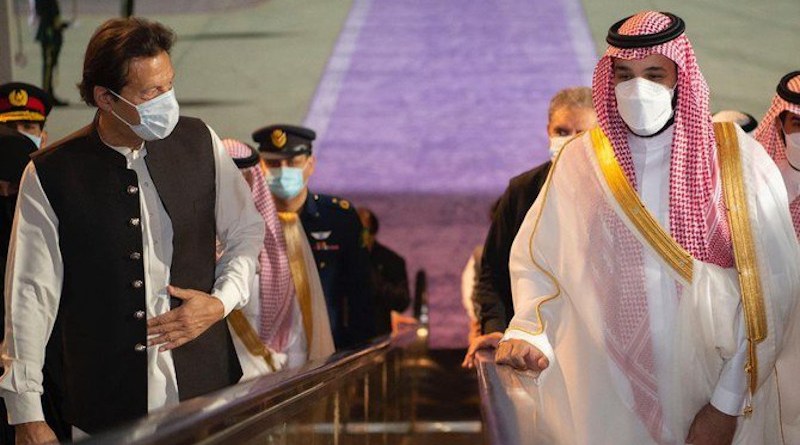
Such clarity of bilateralism vested with brotherhood, Saudi Arabia becomes one of the strongest allies of Pakistan. Pakistan maintains close military ties with Saudi Arabia, ensuring the supply of weapons and training for the Saudi military and Saudi Arabia provides a wealth of religious and educational assistance to Pakistan, as one of the main sponsors of the construction of mosques and madrassas across Pakistan. Saudi Arabia is the preferred destination for immigration among Pakistanis, hundreds of thousands moved from Pakistan into Saudi Arabia. Saudi Arabia is assisting in the development of trade relations with Pakistan through the Cooperation Council of GCC countries with which Pakistan has been in talks on signing a free trade agreement. Saudi Arabia is likewise among the 15 best fare accomplices of Pakistan with which reciprocal exchange volume has gone above US$ 4 billion for each year and is probably going to further expand in the years to come. Saudi Arabia has constantly supported Pakistan on the issue of Jammu and Kashmir. In conclusion, both Pakistan and Saudi Arabia are aware of the importance of each other and have always honoured bilateral relations to be on its peak through thin and thick geopolitical situations.
End Notes
1 Saudi Crown Prince and I share stance against corruption: PM Imran Khan, Dunya TV (February 18, 2019), available online at: https://dunyanews.tv/en/Pakistan/478904-I-and-Saudi-Crown-Prince-share-stance-on-corruption-PM-Imran-Khan- (accessed on February 18, 2019).
2 Joint Statement between Pakistan and Kingdom of Saudi Arabia on the Visit of His Royal Highness Crown Prince Mohamed bin Salman, Deputy Prime Minister and Minister of Defense, to the Islamic Republic of Pakistan-Islamabad (12-13/6/1440H corresponding 17-18 February 2019), Ministry of Foreign Affairs, Government of Pakistan. Available online at: http://mofa.gov.pk/pr-details.php (accessed on February 18, 2019).
3 You will get more votes than me in Pakistan, PM Imran tells Saudi crown prince, Geo News (February 18, 2019), available online at: https://www.geo.tv/latest/228531-you-would-get-more-votes-than-me-in-pakistan-pm-imran-tells-saudi-crown-prince (accessed on February 18, 2019).
4 Crown prince orders health center to be set up in honor of Farman Ali Khan, & Arab News (February 18, 2019), available online at: http://www.arabnews.com/node/1454346/saudi-arabia (accessed on February 18, 2019).
5 Ibid.
6 Saudi crown prince awarded Nishan-e-Pakistan “Pakistan Today (February 18, 2019), available online at: https://www.pakistantoday.com.pk/2019/02/18/saudi-crown-prince-awarded-nishan-e-pakistan/ (accessed on February 18, 2019).
7 Pakistan and Saudi Arabia ink seven agreements, Geo News (February 18, 2019). Available online at: https://www.geo.tv/latest/228502-pakistan-and-saudi-arabia-ink-seven-agreements (accessed on February 18, 2019).
8 Saudi Crown Prince and I share stance against corruption: PM Imran Khan, Dunya TV (February 18, 2019), available online at: https://dunyanews.tv/en/Pakistan/478904-I-and-Saudi-Crown-Prince-share-stance-on-corruption-PM-Imran-Khan- (accessed on February 18, 2019).
9 Chinese investment in CPEC will cross $100 billion CPEC Info (February 02, 2018), available online at: http://www.cpecinfo.com/news/chinese-investment-in-cpec-will-cross-$-100-billion/NDg1Mw== (accessed on February 18, 2019).
10 Saudi Crown Prince and I share stance against corruption: PM Imran Khan, Dunya TV (February 18, 2019), available online at: https://dunyanews.tv/en/Pakistan/478904-I-and-Saudi-Crown-Prince-share-stance-on-corruption-PM-Imran-Khan- (accessed on February 18, 2019).
11 Mozaffar Rizvi, $20billion investment is phase one: Saudi Crown Prince, Khaleej Times (February 18, 2019), available online at: https://www.khaleejtimes.com/international/pakistan/20-billion-investment-is-phase-1-saudi-crown-prince (accessed on February 18, 2019).
12 Syed Ali Shah, China has no objection to Saudi investment in CPEC: Ambassador, Dawn (October 10, 2018), available online at: https://www.dawn.com/news/1438115 (accessed on February 18, 2019)
13 Zafar Bhutta, Russia plans to invest $14b in Pakistan’s energy sector, The Express Tribune (February 7, 2019), available online at: https://tribune.com.pk/story/1904970/2-russia-plans-invest-14b-pakistans-energy-sector/ (accessed on February 18, 2019).
14 Shafqat Ali, UAE crown prince delivers $6.2 billion package, The Nation (January 7, 2019), available online at: https://nation.com.pk/07-Jan-2019/uae-crown-prince-delivers-6-2-billion-package (accessed on February 18, 2019).
15 PM Imran Khan says Pakistan won’t let anyone attack Saudi Arabia, The News International (September 20, 2019), available online at: https://www.thenews.com.pk/latest/371031-pm-imran-khan-says-pakistan-wont-let-anyone-to-attack-saudi-arabia (accessed on February 18, 2019).
16 Joint Statement between Pakistan and Kingdom of Saudi Arabia on the Visit of His Royal Highness Crown Prince Mohamed bin Salman, Deputy Prime Minister and Minister of Defense, to the Islamic Republic of Pakistan-Islamabad (12-13/6/1440H corresponding 17-18 February 2019), Ministry of Foreign Affairs, Government of Pakistan. Available online at: http://mofa.gov.pk/pr-details.php (accessed on February 18, 2019).
17 Ibid.
18 Ibid.
19 Joint Statement between Pakistan and Kingdom of Saudi Arabia on the Visit of His Royal Highness Crown Prince Mohamed bin Salman, Deputy Prime Minister and Minister of Defense, to the Islamic Republic of Pakistan-Islamabad (12-13/6/1440H corresponding 17-18 February 2019) Ministry of Foreign Affairs, Government of Pakistan. Available online at: http://mofa.gov.pk/pr-details.php (accessed on February 18, 2019).
20 Ibid.
21 Frank Gardner, Khashoggi murder: What’s next for Mohammad bin Salman, BBC (November 17, 2018), available online at: https://www.bbc.com/news/av/world-middle-east-46246189/khashoggi-murder-what-s-next-for-mohammed-bin-salman (accessed on February 18, 2019).


